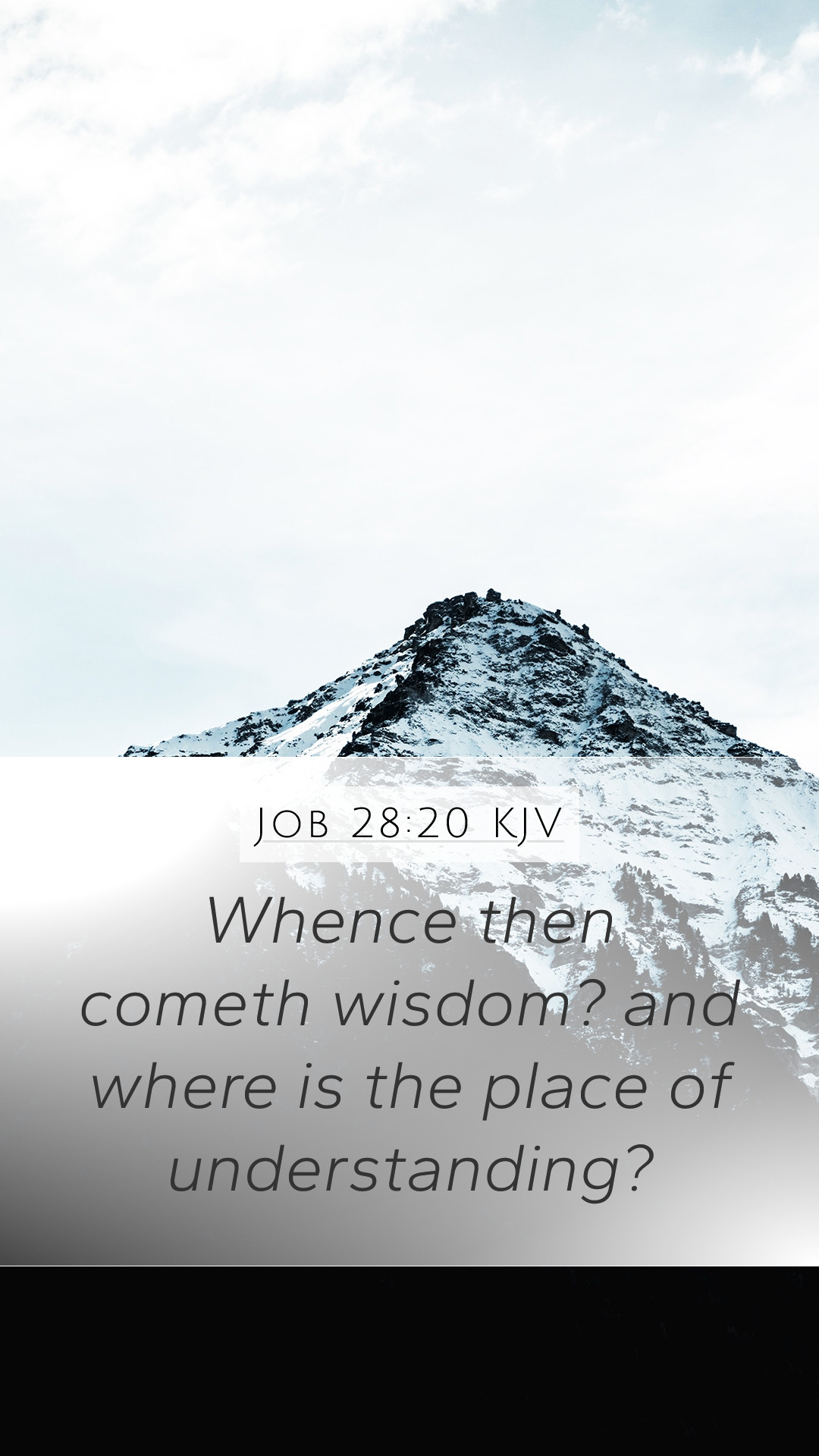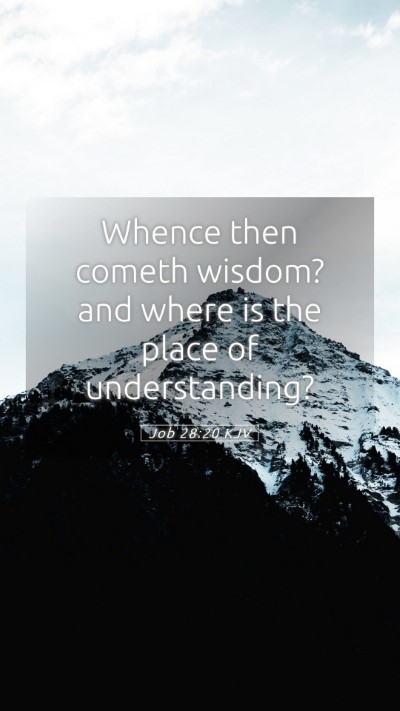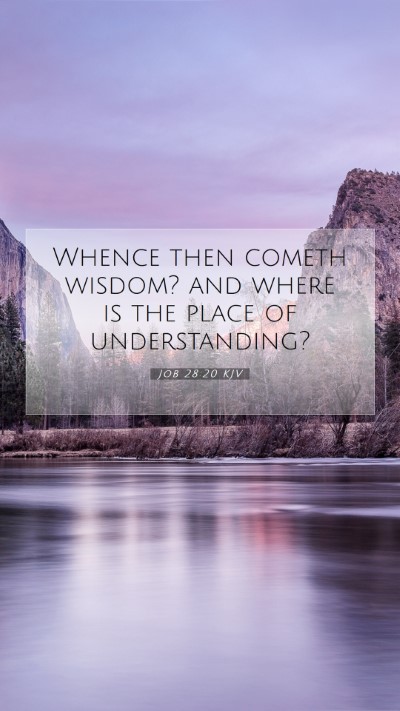Old Testament
Genesis Exodus Leviticus Numbers Deuteronomy Joshua Judges Ruth 1 Samuel 2 Samuel 1 Kings 2 Kings 1 Chronicles 2 Chronicles Ezra Nehemiah Esther Job Psalms Proverbs Ecclesiastes Song of Solomon Isaiah Jeremiah Lamentations Ezekiel Daniel Hosea Joel Amos Obadiah Jonah Micah Nahum Habakkuk Zephaniah Haggai Zechariah MalachiJob 28:20 Meaning
What is the meaning of Job 28:20?
Whence then cometh wisdom? and where is the place of understanding?
Job 28:20 Bible Verse Meaning
Understanding Job 28:20
Job 28:20 states:
"Whence then cometh wisdom? and where is the place of understanding?"
This verse signifies a profound inquiry into the nature of wisdom and understanding, key themes throughout the Book of Job. Below is a detailed examination derived from public domain commentaries, aiming to provide a comprehensive insight into the verse’s meaning.
Bible Verse Meaning
Job 28 serves as a philosophical reflection on the pursuit of wisdom. In verse 20, Job emphasizes the mystery surrounding the origins of wisdom and understanding, highlighting humanity's search for these qualities.
Commentary Insights
- Matthew Henry: Henry elaborates on the idea that wisdom is beyond human reach and understanding, portraying it as a divine attribute. He asserts that true wisdom cannot be found in the material world or through human endeavors alone. Rather, wisdom is a gift from God that must be sought after diligently.
- Albert Barnes: Barnes adds that this verse signifies a recognition of the limitations of human knowledge. He points out that while they might search for wisdom among earthly things, it eludes them, underlining the necessity of seeking divine insight through a relationship with God.
- Adam Clarke: Clarke introduces the notion that 'wisdom' represents a deeper understanding of God's creation and purposes. He suggests that Job is articulating a universal question that has troubled humanity, emphasizing the importance of divine revelation in discerning wisdom and understanding.
Key Themes
- The Elusiveness of Wisdom: This verse illustrates the challenge of finding true wisdom, much like searching for hidden treasures.
- Divine vs. Human Wisdom: Job distinguishes between earthly knowledge and heavenly wisdom, stressing that the latter is essential for a deeper understanding of life’s complexities.
- The Role of Divine Revelation: Wisdom and understanding are ultimately seen as being granted through divine revelation, not solely through intellectual pursuit.
Application of Job 28:20
In everyday life, understanding Job 28:20 calls for a recognition of our limitations and the inherent need for humility in the pursuit of wisdom. It encourages believers to seek God earnestly for understanding and to recognize that true insight comes from aligning oneself with divine principles.
Bible Study Insights
This verse can catalyze profound discussions in Bible study groups. It prompts an exploration of how individuals pursue wisdom in their lives, the difference between worldly knowledge and godly wisdom, and practical steps to cultivate a relationship with God that enhances understanding.
Related Bible Cross References
- Proverbs 2:6: "For the LORD giveth wisdom: out of his mouth cometh knowledge and understanding."
- James 1:5: "If any of you lack wisdom, let him ask of God, that giveth to all men liberally, and upbraideth not; and it shall be given him."
- Ecclesiastes 7:12: "For wisdom is a defense, and money is a defense: but the excellency of knowledge is, that wisdom giveth life to them that have it."
- Colossians 2:3: "In whom are hid all the treasures of wisdom and knowledge."
- Proverbs 3:5-6: "Trust in the LORD with all thine heart; and lean not unto thine own understanding. In all thy ways acknowledge him, and he shall direct thy paths."
Conclusion
Job 28:20 serves as a profound reminder of the quest for wisdom and understanding. The insights drawn from public domain commentaries enrich our understanding and encourage a deeper exploration of this critical biblical theme. By recognizing the divine source of wisdom, we can better navigate life's challenges and seek God's guidance with humility and reverence.


